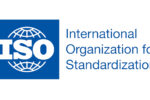Teaching as a Career

Kerala Public Service Commission invited applications for the posts of secondary school teachers in various discipline. Some guidelines for the applicants to become good teachers to mold the future of new generation.
Teaching is a one profession that creates all other profession.
Teaching is the process of imparting knowledge or skills to others and a person who does this job is called a teacher. Teaching involves the specialized application of knowledge, skills and attributes designed to provide unique service to meet the educational needs of the individual and of society. The choice of learning activities whereby the goals of education are realized in the school is the responsibility of the teaching profession.
Considered to be more than a profession, teachers are regarded as the strongest pillar of the society. It is teachers who get us to achieve the goals we aspire for! A teacher is like a potter who delicately shapes our impressionable minds and moulds it into a vessel that defines our perception and ambitions. Teachers have always been respected in all societies. In India, we have a special place for teachers.
If you love spending time with young people, have heaps of patience and masses of energy, then it can be the best job in the world – knowing you have the capacity and responsibility to impact, shape and affect young lives forever. Here are a few questions you need to ask before entering this noble profession of teaching.
*Do you love to be around children?
*Do you have tremendous patience?
*Do you find satisfaction in helping others?
*Do you enjoy gathering and sharing information?
*Do you have a command over written and oral communication skills?
If you answered most of the questions above with a yes, then teaching can just be the best career for you.
Remember a time when teaching as a career option for Indian women was considered the most “suitable”? Since the 90s though, career options in India have multiplied (exploded!) and teaching no longer holds the charm it did.
Teaching is undoubtedly a challenging and rewarding career, although for young school leavers it is often the least sought after. In fact, watching children grow, enjoy learning, and gaining new skills can be very rewarding. There are many young women and men who take up teaching once they understand what a huge difference they can make in the lives of young people. It can be financially rewarding and soul-satisfying as well.
India currently faces a shortage of over 10 lakh teachers, according to estimates by the Ministry of Human Resource Development. India is second in terms of teacher recruitment required to meet the current education demand. In absolute terms, India needs close to 370 thousand new teachers to meet its demand for primary education. About 3 million recruitments will be required for the same by 2030.
Types of Teaching
Right from Montessori to top universities, teachers figure prominently at all levels. Some of the most profound teaching avenues are:
*Pre -School Teaching
*Primary schools
*Secondary and higher secondary teaching
*Colleges and universities
*Teaching in non-schooling avenues like- Private tuitions and coaching classes
Eligibility
There are several routes leading towards a career in teaching depending on what type of teacher you want to become. A high school pass with a nursery training certificate, diploma or degree is the basic requirement for nursery or primary school teaching. The eligibility requirement for a Primary Teacher in a Government School is Senior Secondary School certificate or Intermediate or its equivalent, and Bachelor of Elementary Education (B.El.Ed.), or Diploma or certificate in basic teachers’ training of not less than two years duration.
To become secondary level teacher, for teaching Classes 9 and above you should be graduate or post graduate with B.Ed. For Post- Graduate teachers (PGT teachers) a Masters in the relevant subject is mandatory. The Bachelors in Education (B.Ed) degree equips you with the required theoretical, practical and analytical skills to become a teacher. B.Ed is mostly now a two year course, and it cannot be pursued along with the basic graduation program unless you go for an integrated B.Ed program (4 years). Once you get this degree, you become eligible to work as a secondary school teacher in any private or government schools.
1. Pre-primary education: Teaching of children between the age group 3-5 years. There are several courses for Pre-primary teaching, including Nursery Teacher Training (NTT), Primary Teacher Training (PTT), and Diploma in Education (D.Ed). There are Montessori Teachers training schools which also give training for pre-school education also.
2. Primary education: Teaching of children between the age group of 6 – 12 years in Classes (1-5). Courses include the Bachelor of Elementary Education (B.El.Ed.), Primary Teacher Training programme, or Diploma or certificate in basic teachers’ training of not less than two years duration.
3. High school education: Teaching of children between the age group of 13-16 years, from classes 6 and above. Bachelor of Education is a course offered to educate at this level. Candidates must be graduates to take up B.Ed degree. They should have minimum of 55% in their degree level to apply for B.Ed.
Courses
After Graduation or Post graduation or any teacher training certificates, one needs to clear CTET & TET. These days, CTET has become a compulsory certificate for the selection as a teacher. Many of Private/Public School has also made CTET certificate compulsory eligibility criteria for the selection as a teacher.
Teacher Training courses:
One should go for various teacher training courses to join primary or high schools apart from having a graduation degree. Teaching requires different levels of degrees depending upon the level of middle or high school teaching. These include –
*D Ed. (Diploma in teaching education) is a 2-year diploma program which requires a 12th pass as a minimum qualification.
*NTT (Nursery Teacher Training): Diploma in Nursery Teacher Training program is also known by the short name of NTT course. The main aim of NTT course is to cater to the nursery (pre-primary) level teacher workforce. NTT students are trained in areas like child education, teaching methodology, nursery level subjects & communication. Students who have passed 10+2 (any stream) from a recognized board are eligible to pursue NTT course. Duration of this course is One year.
*PTT (Primary Teacher Training): This is a 2-year regular program for teaching primary school children. One should be 12th pass as minimum qualification to be eligible for this program.
*B El. Ed (Bachelor of Elementary Education) course is specially structured for training teachers for teaching children from classes I to VIII. The Bachelor of Elementary Education (B.El.Ed.) is a three year under-graduate programme for students who have completed 10+ 2.
*B.Ed. (Bachelor in Education), 2-years degree program for students having Bachelor’s degree in Arts or science stream (B.A. Or B.Sc.) as a minimum qualification.
*TET (Teacher Eligibility Test): Every state conducts its own TET exam at the primary and secondary levels of teaching. These tests are conducted by NCTE (National Council for Teacher Education) after passing D.Ed.or B.Ed. Teacher Eligibility Test known as TET is an Indian entrance examination for teachers. The test is mandatory for getting teaching jobs in government schools from Class 1 to Class 8. Paper 1 is meant for teachers opting for Class 1 to Class 5 and Paper 2 for Class 6 to Class 8.
*CTET (Central Teacher Eligibility Test): To qualify for central government or private schools, one has to clear CTET exams.
*Other courses: One who wants to teach higher classes can pursue PGT and TGT courses after passing Master’s degree. One can also do vocational courses to get benefits of a specific field.
*National Eligibility Test (NET) A lecturer or instructor in college needs to have a post-graduate degree with a certificate of eligibility for lectureship, the National Eligibility Test (NET) from the University Grants Commission. The eligibility for appearing in NET exam is to have a Master’s degree or its equivalent from a recognised university.
Skills Required
Often, people choose to become teachers without any insight into the challenges involved and the aptitude needed for the job. The two top qualities seem to be: patience and enthusiasm, and the ability to strike the right balance between the two.
Apart from educational qualifications and a strong command in one’s subject, a set of soft skills is required to be an effective teacher. Prominent among them are organization and clarity with an analytical bent of mind. One should have a high EQ as empathy and care is something that will be vital to deal with kids coming from all kinds of backgrounds, some disruptive too. An aura of self-confidence, enthusiasm towards learning new things every day and dynamism would give an edge, otherwise this job will just like any other, and boredom could start slipping in.
Scope
With the boom in education in last few decades, the numbers of kindergarten, elementary middle and senior secondary schools, colleges, vocational institutions, technical institutes, coaching institutes, universities and other institutions of learning have increased significantly offering great employment opportunities to those with the right motivation and interest. More and more government spending in the social sector has also increased the number of teaching jobs, the 6th Pay Commission recommendations have improved the pay scales, and the entry of several private players in the education sector has provided huge incentives to those looking for a career in teaching.
Teaching is a rewarding career. One can start a career in this field as a primary or high school teacher, and after years of experience, get the opportunity to rise up to be a department head, vice- principal and even principal. You would need more than 10 years of experience to be appointed a school principal. Apart from this, one can pursue doctoral studies to teach in colleges or universities. One can also work as a foreign language expert in various corporate firms. One can also work as a volunteer in NGO, educational institutes, counseling sectors, humanitarian law firms, corporate and computer soft skills trainer and much more.
There are many vacancies for the Teachers post in various government schools. Candidates have to look for the various notifications available for the post of government teachers.
Teaching job opportunities after CTET & TET Certificate : – Some opportunities after CTET & TET certificates include :
1.Navodaya Vidyalaya Samiti
2.Kendriya Vidyalaya Sangathan
3.Army Public School
4.Private Schools
But like all other careers, teaching also has a set of pros and cons.
Pros
*Respect and status in the society: Good teachers are revered by students and their parents alike. Teachers have their own status in the society.
*Job satisfaction: Teachers contribute towards nation building. They develop students into knowledgeable, smart and morally sound citizens and human beings. A good teacher positively enriches the life and future of his/her students.
*Holidays and vacation: Teachers usually get to enjoy almost all public holidays. Apart from that, they also get to enjoy vacations (that come after exams, with festivals etc).
*Respectable pay and perks: This fact is true especially in case of government school teachers. They get to enjoy good pay scales and other perks. Reputed private schools are also known to pay their teachers well.
*Self-employment opportunities: Apart from working at educational institutes, teachers may also become self-employed. Starting tuition classes is a well-known source of additional income.
Cons :
*Limited job opportunities outside teaching: Teachers have very limited job opportunities outside the world of teaching. If a teacher suddenly decides to change his/her profession, it will be very difficult to find a new job (other than teaching).
*Deadlines and work pressure: Teachers are supposed to cover huge syllabus in the stipulated amount of time. The necessity of meeting deadlines often creates work pressure.
*Work beyond school hours: Work hours at schools are fixed. But teachers also have to deal with work outside school hours, such as – evaluating papers, preparing notes, ppt and reports, preparing for the next day’s classes, departmental meetings, attending workshops etc.
Teaching is not everyone’s cup of tea, but hard work, communication and presentation skills, creativity and experience may lead one to the acme of success. Teaching should be an “aspirational” career and those making that choice must be professionally trained and handsomely remunerated.
Always remember that for a teacher the sky is the limit – so go ahead, spread your wings!
- C S Natalia






